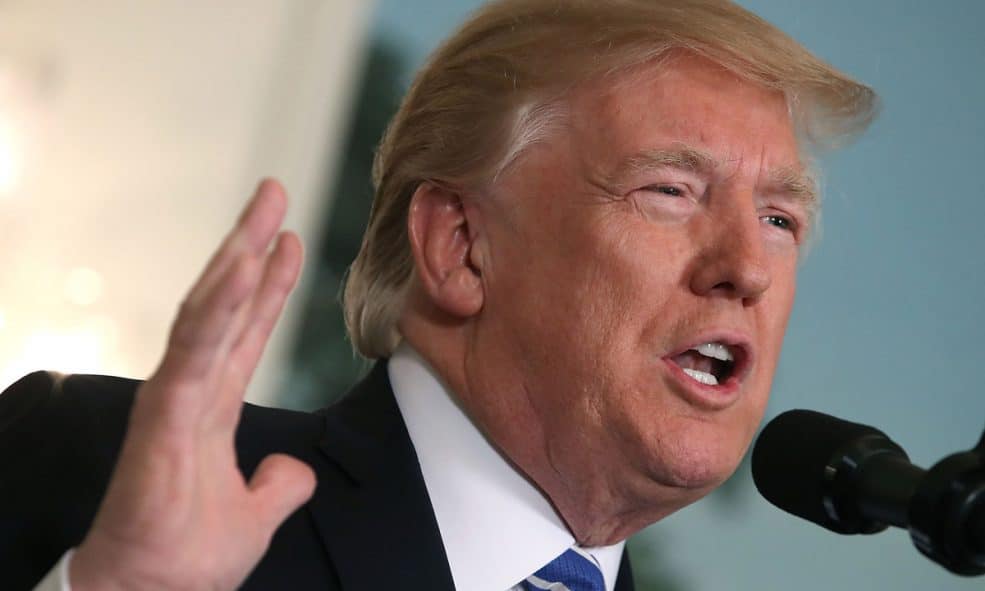There’s no two ways about it: As an investor, you’d struggle to find an industry with a more appetizing long-term growth rate than legal marijuana.According to cannabis research firm ArcView, North American legal sales increased by 34%, to $6.9 billion in 2016, albeit black-market sales still totaled $46.4 billion. As more U.S. states push to legalize, and with Canada potentially on the precipice of legalization by 2018, the expectation is more that this $46 billion-plus in illicit sales will shift to the legal and regulated markets in the years to come.
By 2026, investment firm Cowen & Co. anticipates total legal sales could reach $50 billion. If that’s the case, we’re talking about more than 23% annual growth for a decade. It’s these figures that are attracting businesses and investors to marijuana stocks in droves.
Investing in individual marijuana stocks is incredibly risky
However, marijuana stocks, by themselves, are more often than not dangerous investments. The vast majority of marijuana stocks are losing money and are burning through their cash on hand.Also, most pot stocks are trading on the over-the-counter (OTC) exchanges as opposed to a more reputable and visible exchange, like the New York Stock Exchange (NYSE). Even though the OTC exchanges have improved their reporting and listing standards in recent years, it can still be difficult to get accurate and up-to-date info on OTC-listed stocks.Most marijuana stocks are penny stocks, too, which means they’re highly volatile and usually avoidable. What’s more, many are facing two key disadvantages.For example, companies that sell federally illegal substances — which includes cannabis, a schedule 1 drug at the federal level — are disallowed from taking normal business deductions. This means that most weed companies are paying tax on their gross profits as opposed to net profits, leaving the few that are profitable with less capital left over to reinvest and hire more workers.
Cannabis businesses also get the short end of the stick when it comes to obtaining basic banking services. Financial institutions in the U.S. are often regulated by the Federal Deposit Insurance Corporation, which is a federal entity. If a bank supplies a line of credit, or even a checking account, to a marijuana company, it could be construed as money laundering, and set that financial institution up for fines and/or criminal charges.Within the U.S., there’s also the potential for a recreational marijuana crackdown, as signaled by White House press secretary Sean Spicer back in February. Though the Obama administration was relatively lax with regard to allowing states to regulate their medicinal and recreational laws, the Trump administration seems to have signaled that it’ll be tougher on pot, albeit we’re not certain to what extent. However, with ardent marijuana opponent Jeff Sessions as U.S. attorney general, we can only assume that federal enforcement will be stepped up.In short, buying individual marijuana stocks has appeared like a far-too-risky strategy.
Say hello to the very first marijuana stock ETF
However, this past week brought a first for the investment world — a medical marijuana exchange-traded fund (ETF) made its debut. An ETF is a security that buys a basket of assets and gives investors the opportunity to effectively diversify their holdings without buying each and every stock, bond, or asset represented in a fund.
Of course, the big question is whether or not you should be a buyer. From a practical standpoint, the threshold question is whether you can buy the ETF. Because the shares trade only on the Toronto Stock Exchange, you’d have to have a brokerage account that lets you trade Canadian-listed securities in order to buy.If you can buy, the next question is whether it’s a good decision. On one hand, Horizons has done a good job of adding the few marijuana stocks that are generating positive earnings before interest, taxes, depreciation, and amortization (EBITDA) — Canopy Growth and Aphria — and the one that has the best chance of earning significant profits — GW Pharmaceuticals — into the mix.
Canopy Growth and Aphria have both been working to expand their production capacity, with Canopy Growth doing so by acquisition and Aphria doing so organically. Canopy Growth recently completed its acquisition of Mettrum Health, which boosted its growing capacity, while Aphria began phase 3 of its expansion that’s designed to add 200,000 square feet of space. These two positive EBITDA marijuana stocks could see even more benefits if Canada chooses to legalize recreational weed.
GW Pharmaceuticals, which is arguably the premier cannabinoid drug researcher in the world, is relying on experimental cannabidiol-based drug Epidiolex to deliver significant profits. Epidiolex met its primary endpoint in two separate phase 3 trials, each for patients with Lennox-Gastaut syndrome and Dravet syndrome, two rare childhood-onset forms of epilepsy). If approved by the FDA, Epidiolex has a shot, along with label expansion, at hitting $1 billion or more in annual peak sales, and pushing GW Pharmaceuticals safely into recurring profitability by the year 2020.Additionally, non-traditional cannabis stocks INSYS and Scotts Miracle-Gro are healthfully profitable.
But the aforementioned tax, banking, and political disadvantages still remain, making an investment in a medical marijuana ETF pretty risky — albeit seemingly less risky than buying any individual marijuana stock. If we were to see more of these companies turning healthy profits, or at least generating positive cash flow, there might be a case for consideration.However, with both the U.S. and Canada still viewing pot as illegal, your best bet as an investor is to remain safely on the sidelines until one or both of these countries definitively changes its stance on weed.
credit:fool.com













